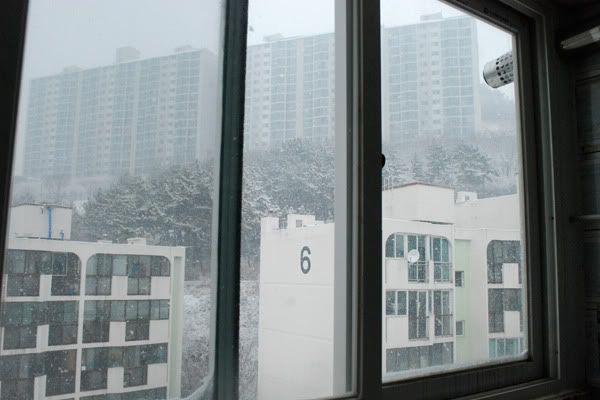For those who are not Korean, "gyopo" is a strange sounding word
Simply put, gyopo is someone of Korean descent that originates outside of Korea. This LA Times
article, written almost exactly a year ago, describes a writer's view of what being a gyopo in Korea is like. Personally, I found the article very different from my own experiences. Here is what I found.
Native Koreans Aren't Angry That Gyopos Aren't Fluent in Korean
In the LA Times article, this quote appeared.
Kang said many South Koreans expect gyopo to possess considerable cultural and linguistic competency. As a result, he said, "the number of culture clashes and number of taxi drivers yelling at these kids is legendary."
I never found this to be the case in many years while living in Korea. Instead, I simply said, in broken Korean, something that translates to "I am sorry but my Korean is not good. I am an American, and studied Korean." Most frequently, the answer I received was "Your Korean is good. (It isn't)" The notion that taxicab drivers in Korea are more rude than in other nations is a strange one: Korean cab drivers are the same as any other countries' cab drivers. Some are nice, some are not. Uh, that sounds like Korean cab drivers are humans.
Certain Natives Are Jealous Which Looks Like Anger
Native Koreans less confident in themselves may seem condescending to gyopos. In this respect, the article is quite true. However, I would suggest that it is really due to the fact that many Koreans, especially Korean ajummas, are particularly sensitive due to the fact that a gyopo has lived outside of Korea,
which is where they want to send their children. I have been talked about (in Korean) by certain people in Korea, who mocked my broken Korean, with comments like "I have a degree from the U.S. also." Those people are in the minority.
Gyopos Are Unfairly Treated By Hagwons/English Education Providers
Now this, I cannot understand. The article is correct: gyopos are disqualified from many English teaching roles.
My post regarding this topic is here. It merely points out one thing: Korea still has a long way to go to be a true meritocracy. While no nation is perfect, this is a societal issue, in my view.
Why Does Any of This Matter?
Korea is small geographically, and has a relatively small population. Therein lies the problem. As many people know, Jewish people around the world influence a great amount of financial capital throughout the world. One day, I was asked by a Jewish friend of mine, "How many Jews in the world do you think there are?" Embarrassingly, I believed the number was approximately 50,000,000, similar to the population of South Korea. WRONG. At that time, there were 7,000,000. Do you think that this amount of clout was earned by 7,000,000 people all acting independently? WRONG AGAIN.
Does this mean that all 7,000,000 are friends? Most definitely not.
Why would I make a comparison to the Jewish population? Well, the Jewish population is under constant threat of extinction and has survived many threats throughout history. Holocaust survivors (yes, there was such a thing) are still living today. Jews have been subjected to prison based on race, and lived through war. Does this sound like any other group of people? You bet: Koreans.
Of course, there is competition among individuals. That is natural. However, the fact that there is this stigma of being a gyopo, and that it would potentially prevent cooperation amongst a people that are already small in population, is another example of how Korea still hasn't reached its full capacity.
Conclusions
The debate about the quality of a gyopo's life in Korea isn't going to end anytime soon. For each anecdote, there will another, contradictory one. To stereotype however, is dangerous, and limits Korea's progress. Surprisingly, I get asked the question "What is it like to be a gyopo in Korea?" If you look on the internet, you will find that same question. That it is an issue should tell readers that some gyopos have felt unfairly treated. Even though I have not felt, overall, that this is the case. Unfortunately, it is clear that some gyopos have been.













 RSS Feed
RSS Feed




Recent comments